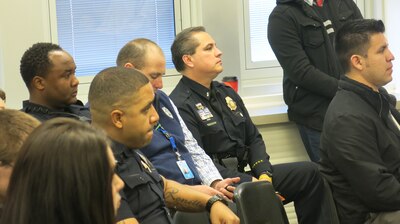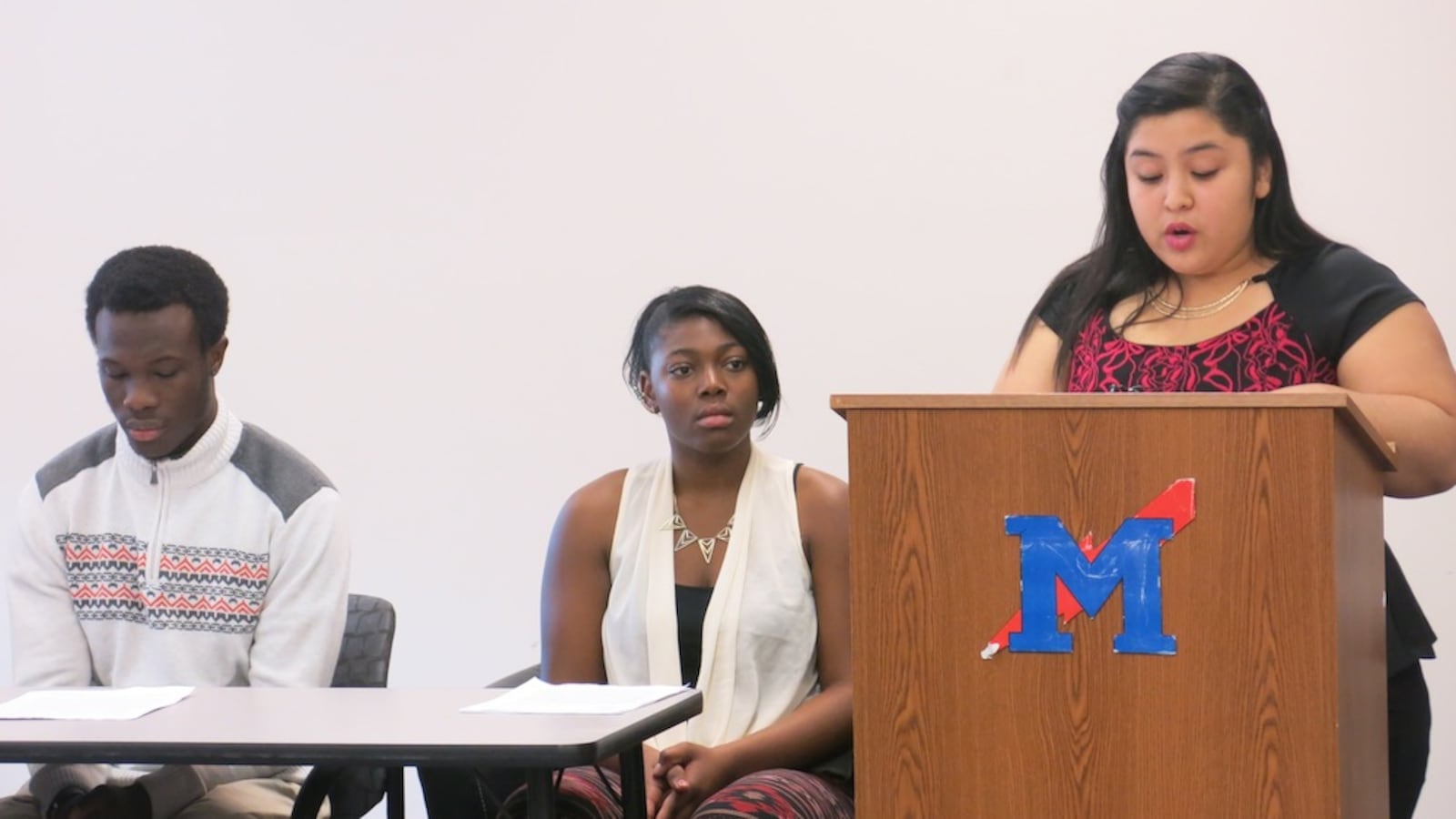This morning at Manual High School, Olivia Jones’ 11th grade Advanced Placement Language and Composition classroom was crowded.
Parents, police officers, district officials, school board members, and community members gathered to hear six students share speeches about race, police brutality, and events in the news.
Since last Wednesday, students at more than a dozen schools across Denver, including Manual, have walked out of class to protest two grand juries’ decisions not to indict police officers in Ferguson, Mo., and in New York City who had killed African-American men. Students are planning another unified protest this afternoon.
But Jones and her class decided that they wanted to go a step deeper and start a dialogue about security, justice, and values.
One student said that the first conversations the class had held about the issue were difficult. The teenagers disagreed with each other: Some thought that Michael Brown and Eric Garner could have prevented tragedy by interacting with the police in a more positive way. Others saw the events as evidence of discrimination.
But the conversation was a starting point for students to explore the thoughts and emotions spurred by the killings. They began to develop their ideas into speeches, weaving statistics and news reports in with personal details and opinions. Some offered suggestions (video cameras for police); others offered emotional anecdotes (a young black man walking down the street and seeing a mother and child move away).
They invited representatives from the mayor’s office, the police department and the school board to hear them share their speeches today.
Here are three:
After the speeches, the class held a brief discussion of some of the points the students had raised.

Bill de la Cruz, the district’s director of equity and inclusion, asked the students how to keep the conversation going.
“One of the things I’ve heard is that young people don’t have an opportunity for their voices to be heard,” he said. “What do we need to do differently so that this happens all the time, not just when there’s a crisis?”
One student suggested a regular series of current events lessons.
“We need people from outside to come in,” said another. “That way our ideas can spread and not just be in a fishbowl.”
Two of the police who joined responded to students’ speeches. One was himself a Manual alumnus.
“What I love is that you are doing something different,” he said.
Another told students that feeling that police needed to be tied to the communities they served was part of what inspired him to become an officer.
“There were things I didn’t necessarily agree with when I was young,” he said. “What I did when I was older, I chose to become a police officer because I believed that the police force needed to be diverse.”
“There’s a perception that young people can’t grapple with this stuff,” said one audience member. “What you did today was helped people show you’re very capable of grappling with the very things we’re struggling with as adults…That’s what’s going to transform us.”
District officials shared resources for teachers and principals to use to discuss Ferguson late last week. Here’s a sample:


